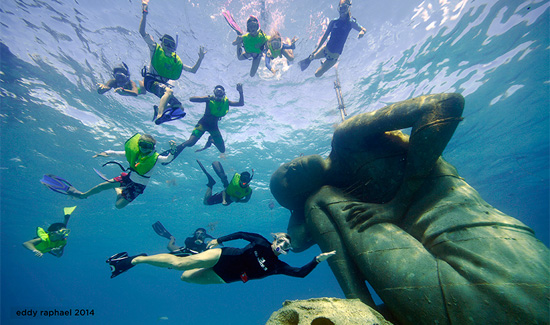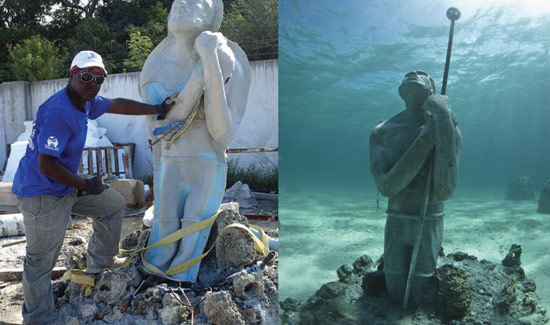
Acclaimed coral scientist Tom Goreau spoke about coral reef decline at Baker’s Bay Club as a result of excessive fertilizer run-off. The speech, presented at the Bahamas National Natural History Conference in Nassau, was well received by the audience and is the first public presentation of data from the Baker’s Bay coral reef controversy.
The speech, billed as “Golf Course Fertilizer Runoff Causes Nutrient Enrichment Leading to Harmful Algae Blooms on a Bahamian Coral Reef”, was co-written by Tom Goreau of the Global Coral Reef Alliance, James Cervino of the Woods Hole Oceanographic Institution, and Troy Albury, President of Save Guana Cay Reef.
Goreau presented data, photographs and maps on changes in coastal algae, algae nutrient contents, and health of adjacent coral reefs, before and after construction of Bakers Bay Golf Course on Guana Cay, Abaco.
After construction, new algae blooms appeared along shores nearest to golf course greens, smothering corals in adjacent reefs, along with sharply increased coral diseases. Bakers Bay claimed there was no link between algae blooms and fertilizer use, that blooms were natural, caused by hurricanes, or due to septic tank leakage from remote areas.
Goreau and two other independent scientists measured coastal algae nitrogen and phosphorus contents around Guana Cay in dry and rainy seasons. Guana Cay waters are phosphorus limited. The highest abundance of harmful algae is in waters next to the golf course, and they contain higher nitrogen than algae from any other part of the island. Algae nitrogen/phosphorus ratios were higher in the rainy season and phosphorus contents lower.
Goreau explained how the nutrient source triggering algae blooms appears to be nitrogen leaching from golf course fertilizer into the sea via groundwater seepage. He explained how similar results could be found in any golf course overlooking tropical shores, but that the Baker’s Bay study is the first to document such impacts.
Goreau concluded with a call for stronger water quality standards, monitoring, and enforcement, better fertilizer management, and planning controls on site are needed to protect coral reef environments in the Bahamas from golf course fertilizer-caused eutrophication.
By SAVE GUANA CAY REEF LIMITED



